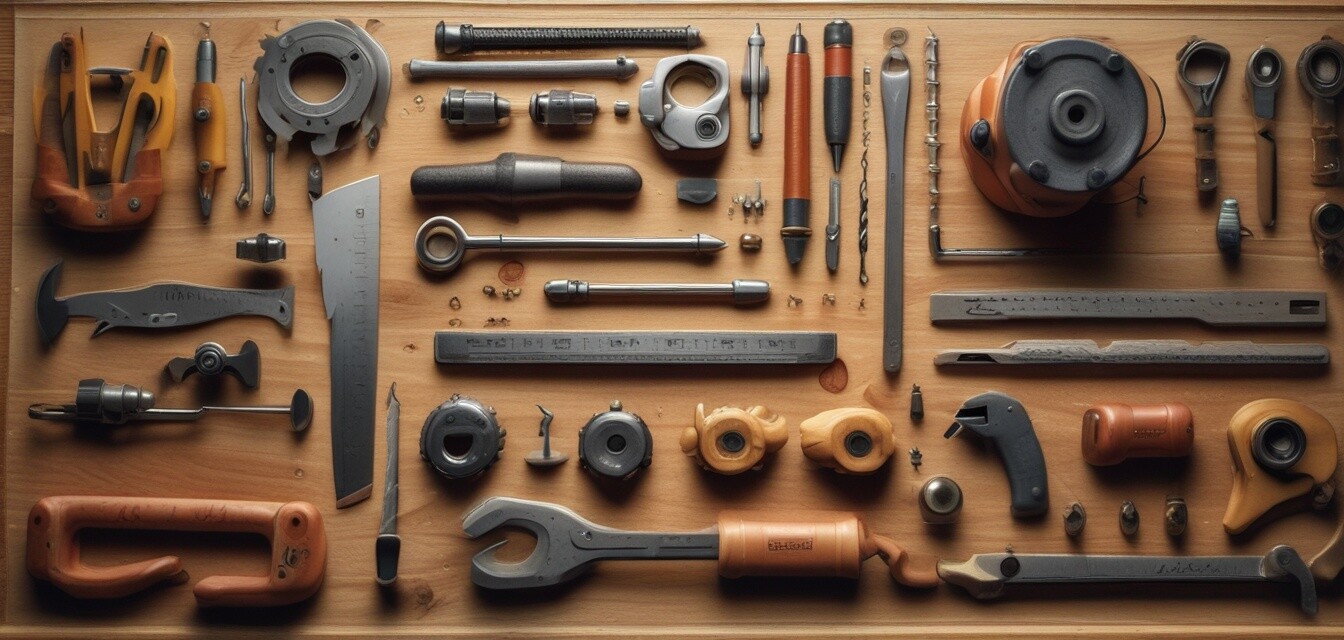
Essential tools for woodworking beginners
- Beginner woodworkers need essential tools to start their projects.
- Understanding the function of each tool can help in making informed choices.
- Tools can vary in type and quality, impacting project outcomes.
- Investing in high-quality tools can save money over time.
- Learn how to care for your tools for longevity and optimal performance.
Starting a woodworking project can be a thrilling endeavor filled with creativity and craftsmanship. However, it is crucial to equip yourself with the right tools tailored to your woodworking needs. This guide aims to provide you with insights into the essential tools that every beginner should have in their toolkit.
Understanding the essential tools
To get started in woodworking, here’s a breakdown of the must-have tools along with their functions:
| Tool | Function |
|---|---|
| Tape Measure | Measuring lengths accurately for cuts. |
| Square | Ensuring angles are precise in your projects. |
| Hand Saw | Cutting wood to the desired size. |
| Chisels | Shaping and carving wood pieces. |
| Drill | Making holes for fasteners or other components. |
| Clamps | Holding pieces of wood securely together during assembly. |
| Sandpaper | Smoothing surfaces before finishing. |
Top must-have woodworking tools for beginners
1. Tape Measure
Accurate measurements are key to a successful woodworking project. A good quality tape measure helps you measure long lengths without error, ensuring each cut is precise.
2. Square
A square tool is vital for marking and measuring right angles. This ensures that your cuts are true, allowing for a perfect fit during assembly.
3. Hand Saw
The hand saw is fundamental for any woodworker. It allows for manual cutting of wood in a controlled manner, ideal for beginners before tackling power saws.
4. Chisels
Chisels are crucial for shaping wood and creating joints. They come in various sizes, and a few good-quality chisels will go a long way in your toolbox.
5. Drill
A drill is essential for making holes in wood for screws and other fasteners. It's a versatile tool that can also fulfill other roles with the right bits.
6. Clamps
Clamps are invaluable for holding pieces together. Whether you're gluing, screwing, or nailing, securing your materials can prevent marring and misalignment.
7. Sandpaper
Smoothing out rough edges is vital for finishing your projects. Sandpaper varies in grit and will help you achieve a polished look.
Additional tools to consider
As you advance in your woodworking journey, there are additional tools you might want to explore. These include:
- Power Saws - such as circular or table saws
- Router - for decorative edges and hollowing applications
- Jigsaw - for intricate cuts and curves
- Bench Grinder - for sharpening tools
Choosing the right tool brands
Not all tools are created equal. When selecting tools for your woodworking projects, consider reputable brands. You might want to check out our pages on Angle Grinders and Cordless Drills for some insights on quality options.
Maintaining your tools
To ensure your tools have a long life and perform optimally, proper maintenance is vital. Here are a few maintenance tips:
Beginner tips for tool maintenance
- Keep your tools clean and free from debris.
- Sharpen blades and bits regularly to maintain effectiveness.
- Store tools in a dry place to prevent rusting.
- Inspect tools regularly for wear and tear, replacing as necessary.
Final thoughts
Making the transition into woodworking can be daunting, but with these essential tools and tips, you'll be well on your way to success. Armed with the knowledge of the right tools, you can embark on your projects with confidence and creativity!
Pros
- Increased creativity through hands-on projects.
- Develops skills useful in various DIY tasks.
- Provides a satisfying hobby with end products.
Cons
- Initial investment in tools can be high.
- Requires time and practice to develop skills.
- Can be dangerous if proper precautions are not taken.
